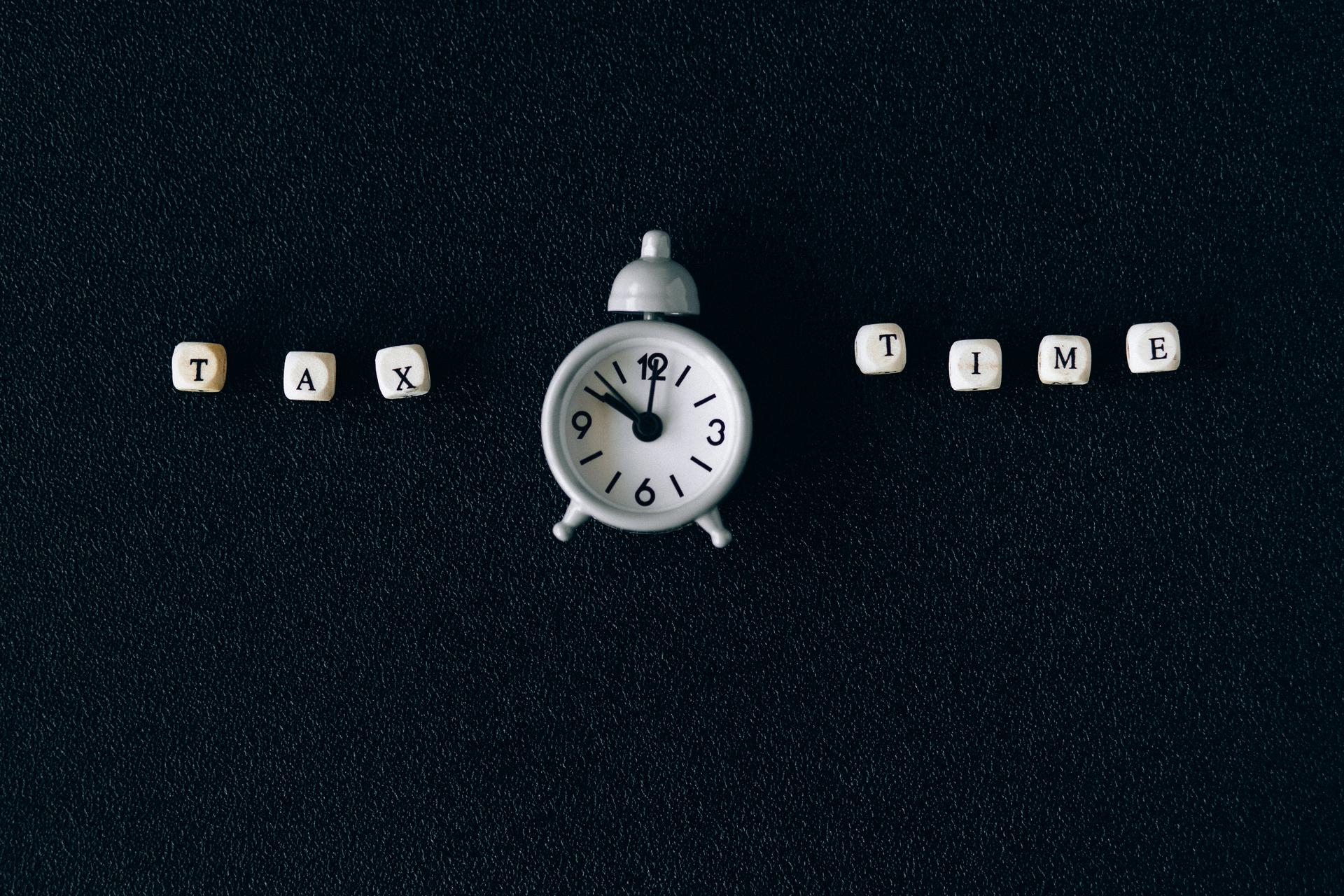Tax Time Targets
Clarke McEwan Accountants

Tax Time Targets
The ATO has flagged four priority areas this tax season where people are making mistakes.
With tax season almost upon us the Australian Taxation Office (ATO) has revealed its four areas of focus this tax season:
1. Record-keeping
2. Work-related expenses
3. Rental property income and deductions, and
4. Capital gains from crypto assets, property, and shares.
In general, there are three ‘golden rules’ when claiming tax deductions:
- You must have spent the money and not been reimbursed.
- If the expense is for a mix of work related (income producing) and private use, you can only claim the portion that relates to how you earn your income.
- You need to have a record to prove it.
1.0 Record keeping
101 of working with the ATO is that you can’t claim it if you can’t prove it. If you are audited, the ATO will disallow deductions for unsubstantiated or unreasonable expenses. Even if the expense is below the substantiation threshold of $300 ($150 for laundry), the ATO might ask how you came up with that number. For example, if you claim $300 in work related expenses (that is, make a claim right up to the substantiation threshold), how did you come up with that number and not something else?
In addition to the obvious records of salary, wages, allowances, government payments or pensions and annuities, you need to keep records of:
- Interest or managed funds.
- Records of expenses for any deductions claimed including a record of how that expense relates to the way you earn your income. That is, the expense must be related to how you earn your income. For example, if you claim the cost of RAT tests, you need to be able to prove that the RAT test was necessary to enable you to work. If you were working from home and not required to leave home, it will be harder to claim the cost of the test.
- Assets such as shares or units in a trust, rental properties or holiday homes, if you purchased a home or inherited a property, or disposed of an asset (including cryptocurrency).
You need to keep your records for five years. These can be digital copies of the records as long as they are clear and legible copies of the original. If your records are digital, keep a backup.
Records can be tax invoices, receipts, diary entries or something else that proves you incurred the expense and how it related to how you earn your income.
2.0 Work-related expenses
To claim a deduction, you need to have incurred the expense yourself and not been reimbursed by your employer or business, and the expense needs to be directly related to your work.
What expenses are related to work?
You can claim a deduction for all losses and outgoings “to the extent to which they are incurred in gaining or producing assessable income except where the outgoings are of a capital, private or domestic nature, or relate to the earning of exempt income.” That is, there must be a nexus between the expenses you are claiming and how you earn your income.
It all sounds simple enough until you start applying this rule. Take the example of an actor. To land the acting job she needs to attend auditions. She wants to claim the cost of having her hair and make-up done for the audition. But, because she is not generating income at the stage of the audition, she cannot claim her expenses. The expense must be related to how you are currently earning your income, not future potential income. The same issue applies to upskilling. If you attend investment seminars with the intention of building your investment portfolio the seminar is not deductible as a self-education expense unless it relates to managing your existing investment portfolio - not a future one. Or, a nurse’s aide who attendees university to qualify as a nurse. The university degree and the expenses associated with this are not deductible as the nursing degree is not required to fulfil the role of a nurse’s aide.
The second area of confusion is over what can be claimed for work. If the item is “conventional” it’s unlikely to be deductible. For example, you can't claim conventional clothing (including footwear) as a work-related expense, even if your employer requires you to wear it and you only wear the items of clothing at work. To be deductible clothing must be protective, occupation specific such as a chef’s chequered pants, a compulsory uniform, or a registered non-compulsory uniform.
Work related or private?
Another area of confusion is where expenses are incurred for work purposes but used privately. Internet access or mobile phone services are typical. A lot of people take the view that the expense had to be incurred for work so what does it matter if it’s used for private purposes? But, if you use the service on more than an ad-hoc basis for any purpose other than work, then the expense needs to be apportioned and only the work-related percentage claimed as a deduction. And yes, the ATO does check usage in an audit.
Claims for COVID-19 tests will be a test of this rule. COVID-19 tests are deductible from 1 July 2021 if the purpose was to determine whether you may attend or remain at work. The tax deduction does not apply if you worked from home and didn’t intend to attend your workplace, or the test was used for private purposes (for example, to tests the kids before school).
Claiming work from home expenses
Last financial year, one in three Australians claimed working from home expenses. Now we’re out of the pandemic, the ATO will be focussing specifically on what is being claimed. If you claimed work from home expenses last year and returned to the office this year, then there should be a reduction in your work from home claim. The ATO will be looking for discrepancies.
If you are claiming your expenses, there are three methods you can use:
- The ATO’s simplified 80 cents per hour short-cut method – you can claim 80 cents for every hour you worked from home from 1 March 2020 to 30 June 2022. You will need to have evidence of hours worked like a timesheet or diary. The rate covers all of your expenses and you cannot claim individual items separately, such as office furniture or a computer.
- Fixed rate 52 cents per hour method – applies if you have set up a home office but are not running a business from home. You can claim 52 cents for every hour and this covers the running expenses of your home. You can claim your phone, internet, or the decline in value of equipment separately.
- Actual expenses method – you can claim the actual expenses you incur (and reduce the claim by any personal use and use by other family members). You will need to ensure you have kept records such as receipts to use this method.
It’s this last method, the actual method, the ATO is scrutinising because people using this method tend to lodge much higher claims in their tax return. Ineligible expenses include:
- Personal expenses such as coffee, tea and toilet paper
- Expenses related to a child’s education, such as online learning courses or laptops
- Claiming large expenses up-front (instead of claiming depreciation for assets), and
- Occupancy expenses such as rent, mortgage interest, property insurance, and land taxes and rates, that cannot generally be claimed by employees working from home (especially by those who are working from home solely due to a lockdown).
3.0 Rental property income and deductions
For landlords, the focus is on ensuring that all income received, whether long-term, short-term, rental bonds, back payments, or insurance pay-outs, are recognised in your tax return.
If your rental property is outside of Australia, and you are an Australian resident for tax purposes, you must recognise the rental income you received in your tax return (excluding any tax you have paid overseas), unless you are classified as a temporary resident for tax purposes. You can claim expenses related to the property, although there are some special rules that need to be considered when it comes to interest deductions. For example, if you have borrowed money from an overseas lender you might be subject to withholding tax obligations.
Co-owned properties
For tax purposes, rental income and expenses need to be recognised in line with the legal ownership of the property, except in very limited circumstances where it can be shown that the equitable interest in the property is different from the legal title. The ATO will assume that where the taxpayers are related, the equitable right is the same as the legal title (unless there is evidence to suggest otherwise such as a deed of trust etc.,).
This means that if you hold a 25% legal interest in a property then you should recognise 25% of the rental income and rental expenses in your tax returns even if you pay most or all of the rental property expenses (the ATO would treat this as a private arrangement between the owners).
The main exception is where the parties have separately borrowed money to acquire their interest in the property, then they would claim their own interest deductions.
4.0 Capital gains from crypto, property or other assets
If you dispose of an asset - property, shares, crypto or NFTs, collectables (costing $500 or more) - you will need to calculate the capital gain or loss and record this in your tax return. Capital gains tax (CGT) does not apply to personal use assets such as a boat if you bought it for less than $10,000.
Crypto and capital gains tax
A question that often comes up is when do I pay tax on cryptocurrency?
If you acquire the cryptocurrency to make a private purchase and you don’t hold onto it, the crypto might qualify as a personal use asset. But in most cases, that is not the case and people acquire crypto as an investment, even if they do sometimes use it to buy things.
Generally, a CGT event occurs when disposing of cryptocurrency. This can include selling cryptocurrency for a fiat currency (e.g., $AUD), exchanging one cryptocurrency for another, gifting it, trading it, or using it to pay for goods or services.
Each cryptocurrency is a separate asset for CGT purposes. When you dispose of one cryptocurrency to acquire another, you are disposing of one CGT asset and acquiring another CGT asset. This triggers a taxing event.
Transferring cryptocurrency from one wallet to another is not a CGT disposal if you maintain ownership of the coin.
Record keeping is extremely important – you need receipts and details of the type of coin, purchase price, date and time of transactions in Australian dollars, records for any exchanges, digital wallet and keys, and what has been paid in commissions or brokerage fees, and records of tax agent, accountant and legal costs. The ATO regularly runs data matching projects, and has access to the data from many crypto platforms and banks.
If you make a loss on cryptocurrency, you can generally only claim the loss as a deduction if you are in the business of trading.
Gifting an asset might still incur tax
Donating or gifting an asset does not avoid capital gains tax. If you receive nothing or less than the market value of the asset, the market value substitution rules might come into play. The market value substitution rule can treat you as having received the market value of the asset you donated or gifted for the purpose of your CGT calculations.
For example, if Mum & Dad buy a block of land then eventually gift the block of land to their daughter, the ATO will look at the value of the land at the point they gifted it. If the market value of the land is higher than the amount that Mum & Dad paid for it, then this would normally trigger a capital gains tax liability. It does not matter that Mum & Dad did not receive any money for the land.
Donations of cryptocurrency might also trigger capital gains tax. If you donate cryptocurrency to a charity, you are likely to be assessed on the market value of the crypto at the point you donated it. You can only claim a tax deduction for the donation if the charity is a deductible gift recipient and the charity is set up to accept cryptocurrency.







